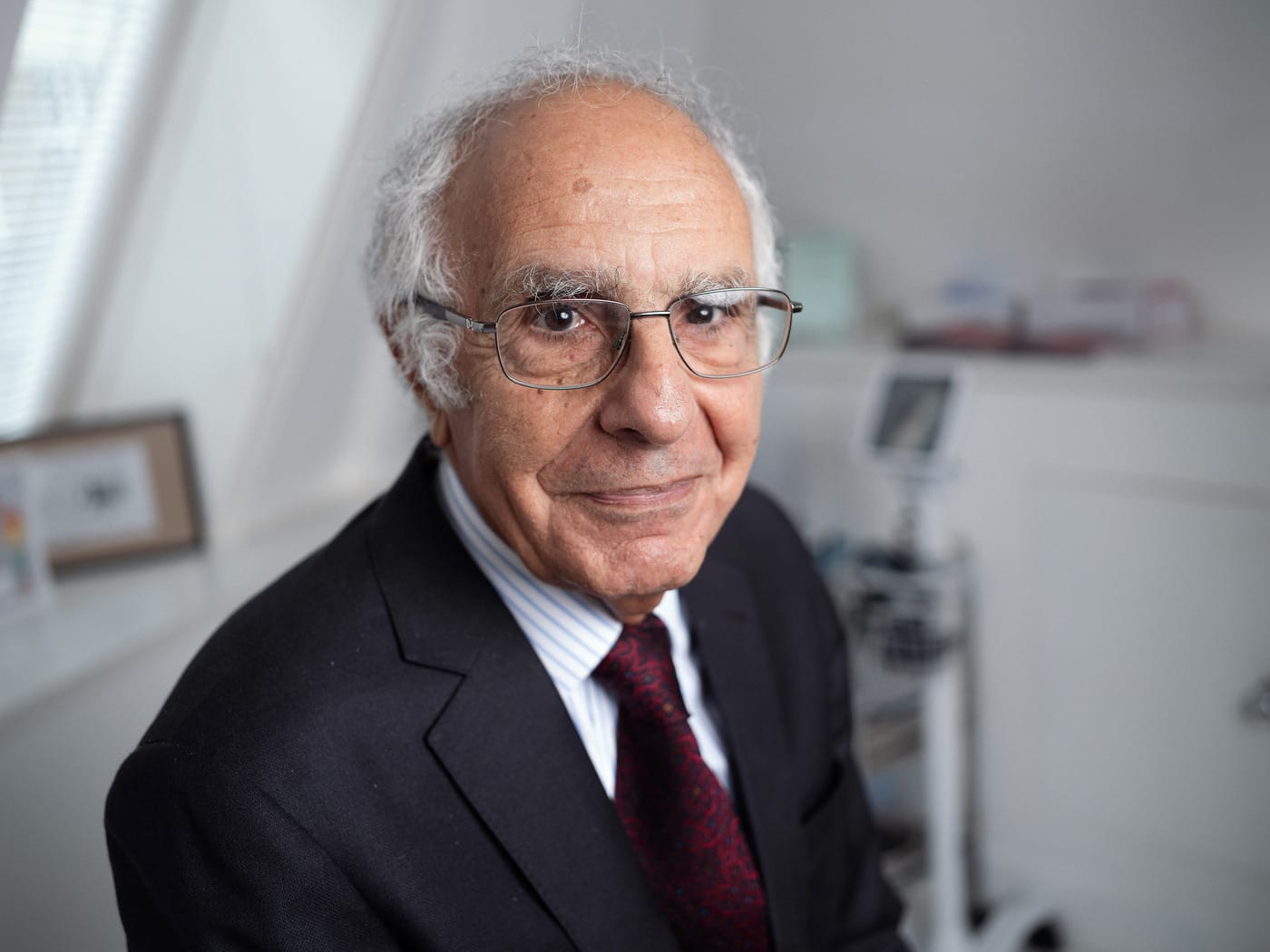London Medical Cardiology
Risk Factors For Coronary Artery Disease
London Medical’s Cardiology Clinic provides the most up-to-date investigative cardiac procedures for patients with heart problems – and some of the UK’s most renowned cardiologists hold clinics here for all aspects of heart disease.
Risk Factors For Coronary Artery Disease
Coronary artery disease is one of the leading causes of death in the UK, causing approximately 25,000 deaths each year in people under the age of 75. With such a high prevalence, looking after your heart health is crucial.
Coronary artery disease is brought on when a build-up of atheroma, or fatty deposits, causes the arteries to narrow in a process known as atherosclerosis. This restricts healthy blood flow and can lead to angina and heart attacks, as well as a variety of other heart problems.
Many risk factors can contribute to the development of coronary artery disease — some of which can be avoided and others that cannot. In this blog post, we will highlight what these risk factors are and teach you how to keep your heart in tip-top condition.
Unavoidable risk factors
Some risk factors for coronary artery disease are unavoidable, but, even if you have them, it won’t necessarily mean that you are going to develop the condition.
Age
Getting older is known to increase the risk of your arteries narrowing and coronary artery disease developing, but this can be divided even further when taking gender into account.
Studies have found that women tend to develop the condition later in life than men. That said, coronary artery disease is still one of the leading causes of death in women aged over 65, largely due to underdiagnosis — an ongoing issue that women face with many medical conditions.
Gender
As mentioned above, women typically develop coronary artery disease seven to ten years later than men do.
Some research suggests that the oestrogen a woman’s body releases before menopause protects them against the development of atherosclerosis. However, once women go through menopause, their oestrogen levels rapidly decrease, which may lead to a reduced level of protection from atherosclerosis.
Hereditary factors
Family history is also an unavoidable risk factor for coronary artery disease. If your father or brother has had the condition before they reached 55 years old, or your mother or sister developed it before 65, this can put you at a higher risk of developing it yourself.
The most common genetic condition is familial hypercholesterolaemia which significantly increases the risk of premature heart attacks in families. Another factor is your polygenic risk. This is the combined effect of many different genes that increase your risk of developing a trait or condition such as coronary heart disease. Polygenic risks are not commonly passed down in families as it is a combination of numerous genetic variants rather than one or two.
Some people can inherit markers that increase the risk, such as lipoprotein (a), which can make you more likely to develop early cardiovascular disease.
These don’t necessarily mean you will definitely get coronary artery disease in your lifetime. However, if you have a known history of it in your family, you may be genetically predisposed to it and will likely need to monitor your heart health closely.
Lifestyle risk factors
Some risk factors for coronary artery disease can be attributed to the lifestyle choices you make. The good news is, they can easily be changed to help improve your heart health. These include:
Smoking
Smoking is one of the major risk factors for coronary artery disease since harmful chemicals like nicotine and carbon monoxide can put a lot of strain on your heart. Other toxic chemicals contained inside cigarettes can also cause damage to your arteries, causing them to narrow and become blocked.
Stopping smoking and vaping is essential for reducing your risk of coronary artery disease.
Being overweight or obese
Being overweight or obese can greatly increase your risk of coronary artery disease and could lead to the development of high blood pressure, high cholesterol and type 2 diabetes. Each of these can then increase your risk of developing coronary artery disease.
Poor diet
Only a quarter of UK adults eat five portions of fruit and veg per day, proving that many people do not maintain the best diet for optimum health.
Eating a diet high in saturated fats, trans fats and cholesterol can greatly increase your risk of developing atherosclerosis, which could then develop into coronary artery disease or another heart-related issue. Conversely, supplementing monounsaturated fats – such as olive oil instead of butter, nuts, seeds, fish and avocado can help reduce coronary risk.
Heart conditions
Different heart conditions can lead to the development of coronary artery disease. These include:
High blood pressure
When your blood pressure is too high, it can put a strain on your heart and potentially lead to coronary artery disease though more commonly it leads to an enlarged heart and heart failure.
Hypertriglyceridaemia
Hypertriglyceridaemia is when you have too many triglycerides (fats) in your blood. The condition may occur due to genetic factors, underlying medical conditions or lifestyle choices such as drinking too much alcohol and eating a diet high in refined carbs and sugar. When the triglycerides are mildly elevated, as in diabetes, the cholesterol abnormalities are called a dyslipidaemia, and the character and composition of the LDL lipoproteins are more harmful for a given LDL cholesterol level. This can cause damage to your arteries and eventually lead to the development of coronary artery disease.
Very high fasting triglyceride levels carry an increased risk of severe pancreatitis and may have a genetic basis that must be investigated and treated.
Atherosclerosis
Atherosclerosis is one of the leading causes of coronary artery disease. Risk factors for this heart condition can include being over 65, smoking, having high blood pressure or LDL cholesterol, and having a close relative with cardiovascular disease.
Other medical conditions
A number of other health conditions may put you at a higher risk of developing coronary artery disease.
Diabetes
Type 2 diabetes can increase your risk of coronary artery disease due to its associated links with obesity, high blood pressure and cholesterol.
Kidney disease
Coronary artery disease is the leading cause of morbidity and mortality in people with chronic kidney disease. This could be for several reasons, such as the risk of diabetes, high blood pressure and cholesterol tending to be higher in people with chronic kidney disease. Dialysis can also contribute to inflammation in the body which can then increase the risk of atherosclerosis.
Inflammation
Diseases with ongoing inflammation, such as psoriasis, lupus or rheumatoid arthritis can also increase your risk of atherosclerosis, leading to the potential development of coronary artery disease.
Coronary artery disease may be a common condition but, depending on the risk factors you have, it can be preventable. While some risk factors like your age or genetic disposition may be unavoidable, other things like your LDL cholesterol, smoking and diet can be controlled and improved to reduce your overall risk.
If you’re worried about your heart health and want to take steps to improve it, book an appointment with us at London Medical. Our cardiology team is always on hand to help safeguard your health and future wellbeing.
Sources
- https://www.bhf.org.uk/-/media/files/for-professionals/research/heart-statistics/bhf-cvd-statistics-uk-factsheet.pdf
- https://www.nhs.uk/conditions/coronary-heart-disease/
- https://www.mayoclinic.org/diseases-conditions/coronary-artery-disease/symptoms-causes/syc-20350613
- https://my.clevelandclinic.org/health/diseases/16898-coronary-artery-disease#symptoms-and-causes
- https://www.ncbi.nlm.nih.gov/pmc/articles/PMC8934162/
- https://www.nhs.uk/conditions/atherosclerosis
- https://www.ncbi.nlm.nih.gov/pmc/articles/PMC3941098/
Our Consultants
Professor Thomas F. Lüscher
Consultant in cardiology, interested in interventional cardiology, rhythmology, echocardiography, heart failure, acute cardiac care, and sports cardiology.
Professor Carlo Di Mario
Specialist in Interventional cardiology – the use of catheters and other devices to restore blood flow to the heart without major surgery.
Professor Simon Woldman
Consultant cardiologist, specialising in heart failure.
Dr George Amin-Youssef
Consultant cardiologist who deals with adults and specialises in heart failure, including advanced heart failure, working in one of the largest heart failure units in the UK.
Dr Fadi Jouhra
Experienced cardiologist, has vast expertise in managing patients with general cardiological problems. Also specialises in complex cardiac devices and heart failure.
Dr Ralph Abraham
Dr Ralph Abraham, a founder of London Medical, specialises in diabetes, weight management, endocrinology and cholesterol.
Professor Kausik Ray
Consultant preventative cardiologist, specialising in diabetes, lipids, glucose, hypertension and cardiometabolic traits.
Dr Catherine Lunken
Specialist in seeing patients with all types of diabetes using up to date technology. Dr Lunken also sees patients with inherited lipid disorders and those with statin intolerances.
Our Cardiology specialties
We offer care across a broad range of cardiology specialties. We have some of the top specialists in every aspect of cardiac care. Our entire team is dedicated to working together to consider the results of your investigations, your health and your lifestyle before tailoring a treatment plan to your individual needs.
Our Locations
London Medical is located in the Harley Street medical area. Together with top experts across a range of multi-disciplinary fields, we offer the finest facilities for your care, all under one roof.
Monday to Friday 8.30am to 8pm
Monday to Friday 8.30am to 8pm
Monday to Friday 8.30am to 8pm
Speak to a member of our team
Contact the appointments team
If you have any questions or want to book an appointment, please speak to our team on +44 (0)800 0483 330.
If you wish to book online, for private GP appointments, please use our GP appointment form.
Or, make an enquiry online using this form and one of our team will be in touch. Please note, all the information collected is required as part of our registration process. By using this form you agree with the storage and handling of your data by our team. You don't need a referral from your GP to make an appointment with us.
Heart Health News
Find out the latest news, thinking and insights from our experts. Our Heart Health News is your go-to source of trusted advice and knowledge on all matters of the heart.











